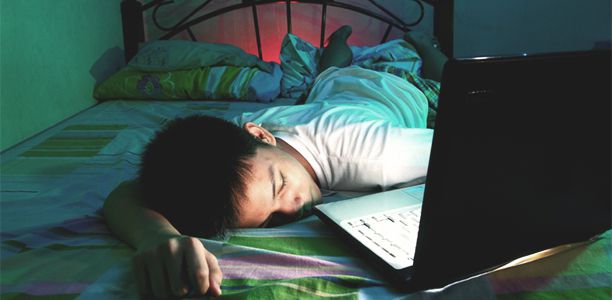More than 50% of teenagers do not get enough sleep on school nights, often due to the onset of puberty and social media-internet interaction.
While many teens report to be tired next day, parents are loath to intervene with body clock changes and set more regimented bedtimes, sleep experts at Flinders University say.
The researchers are expanded their investigations into the biological and psych-social reasons behind teen sleep patterns in a new three-year study.
“Watching your child turn into a teenager can see big changes in their sleep patterns,” says researcher Dr Michelle Short.
“We are interested in finding out why kids go from waking at the crack of dawn bursting with energy during childhood to being grouchy, slug-like creatures who are difficult to get out of bed during adolescence,” she says.
To find out more, the research group is conducting six-monthly sleep assessments on boys from the age of 10 at the sleep lab at Flinders University at Bedford Park.
The longitudinal study, funded by the Australian Research Council, involves Flinders researchers Dr Short, Chelsea Reynolds, Professor Leon Lack and Associate Professor Michael Gradisar from Flinders’ School of Psychology, UniSA researchers, and American Professor of Psychiatry and Human Behaviour Mary Carskadon from Brown University in the US.
Dr Short’s previous research at UniSA found that teens who had insufficent sleep could not sustain attention, had difficulty regulating their emotions, were more risk taking, and performed worse on tasks measuring complex decision-making.
“Sleep deprivation certainly had an effect on adolescent cognitive functioning, memory and mood,” she says.
“Our grandmothers were right. Science is really supporting all of the traditional advice. Getting a good night’s sleep, having a good routine, getting to bed early to get enough sleep is setting people up for optimal daytime functioning.
“But some pre-teens seem to handle the changes to their sleep patterns better than others, and now this landmark study being run through Flinders University hopes to determine why.”
To join the latest study, or for more information, please email Dr Michelle Short at sleepcamp@flinders.edu.au
(Source: Flinders University)











